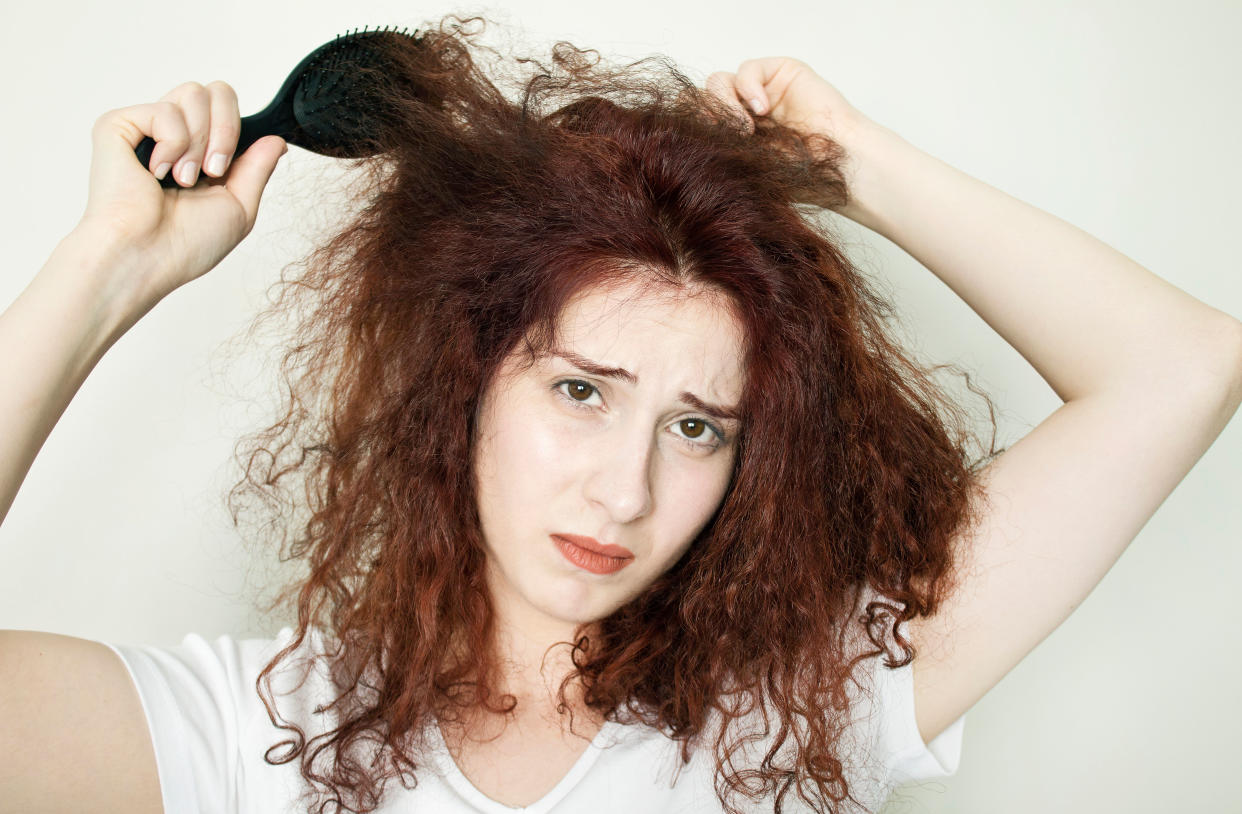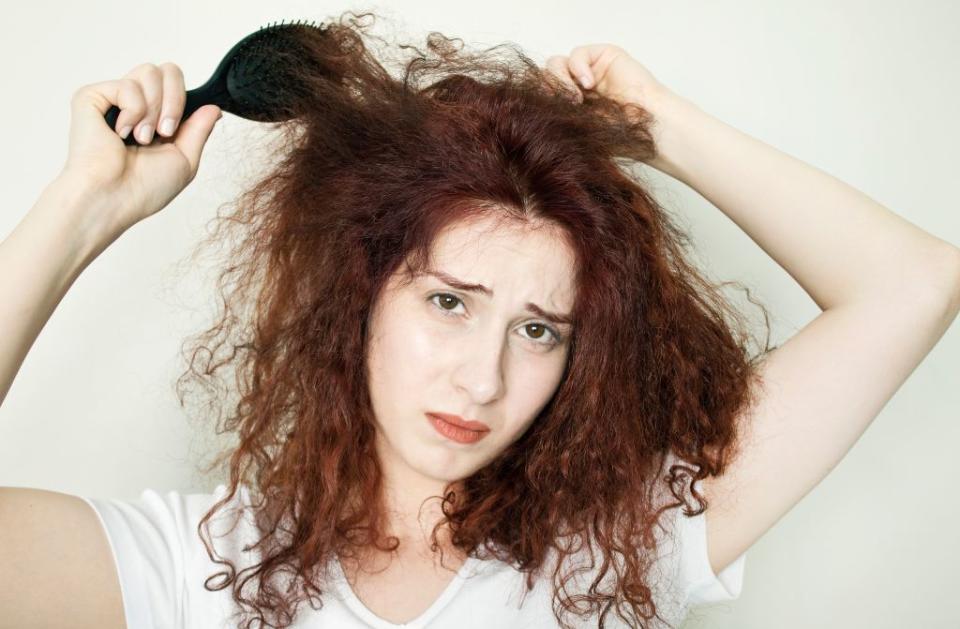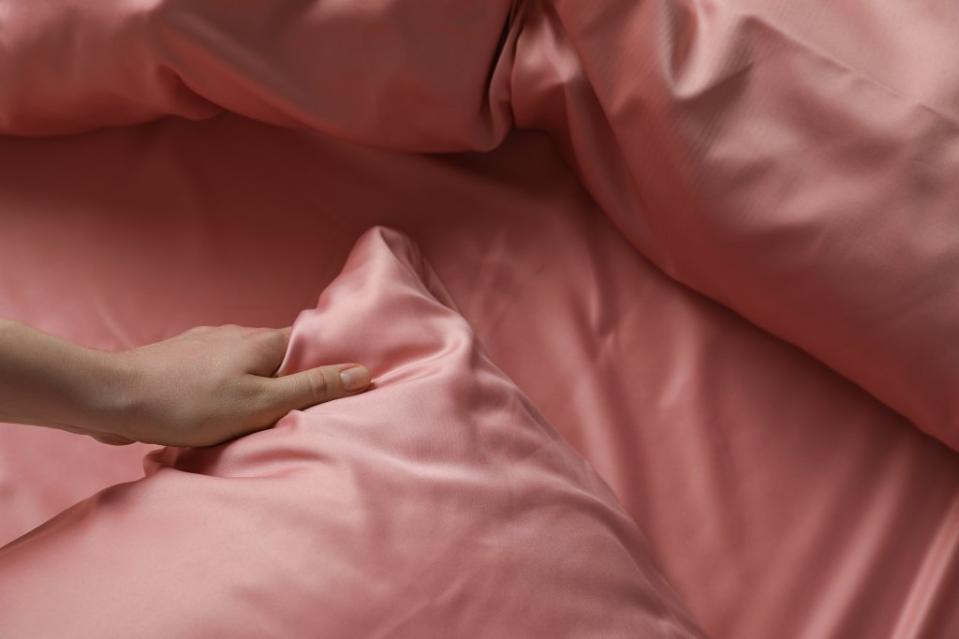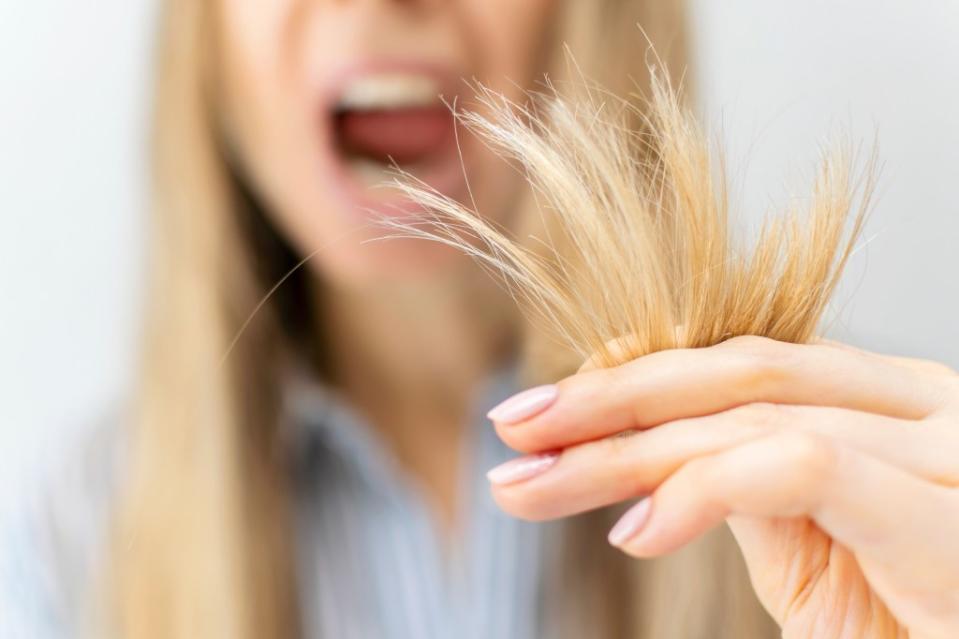Your everyday habits are ruining your hair — here are 8 tips to prevent it

It’s often hard to pinpoint what exactly is ruining your hair — and it could be something as simple as an everyday habit.
Beauty experts and trichologists have revealed several ways that you could be damaging your hair without even knowing it, plus some tips to help prevent these simple mistakes.
Tie your hair back
Eva Proudman, a trichologist and hair expert for Absolute Collagen, shared with The Sun that there’s the possibility your hair is getting damaged even while you sleep.
“Tossing and turning at night causes friction and heat between your hair and pillow, which can damage the hair and lead to breakage,” she explained.
It’s common knowledge that excessive heat from hair tools can cause some ruin — but most people don’t think about the heat that occurs while in slumber.
Luckily, Proudman shared that there’s a way to keep your hair safe from friction.
“The best way to protect your hair from friction and damage is to tie it back rather than up. Tying your hair back can indeed cause pulling, but when done correctly, can minimize any friction during the night.”

Sleep with dry hair
Sleeping with your hair wet can cause even more damage since the hair is at its most delicate state when wet, experts at the haircare brand shared.
“Wet hairs are like “wet spaghetti,” Bronwen Robinson, a senior hair stylist & educator at Suite Caroline in Soho, previously told The Post, meaning it can stretch and break easily due to a lack of resilience.
“The friction and heat from moving around in your sleep can increase matting and even breakage,” they said.
The best thing to do is to wash your hair several hours before going to bed so it has time to air dry. However, if that’s not doable, be sure to use a heat protectant before blow-drying.
Be careful how you dry your hair
The American Academy of Dermatology Association (AAD) warned against drying your hair by rubbing it with a towel.
Instead, wrap your hair in a towel to absorb the water and let it air dry.
Use a silk or satin pillowcase
For those with a lot of hair breakage, sleeping on a luxurious silk or satin pillowcase can have great benefits —especially if you’re a restless sleeper.
Experts say that using one of these pillowcases can help combat tangles, friction and frizz, and silk pillowcases have the added benefit of not absorbing natural oils in the hair that keep your scalp hydrated.
Robinson also encouraged the use of silk pillowcases, made from a natural fabric, over satin, a synthetic material, since the latter, by nature, traps heat.
“If you start to get hot, that perspiration could have another effect that you don’t want,” she said.

Wrap your hair
If a silk or satin pillowcase is out of the question, using a silk or satin scarf to wrap around your hair can have similar effects.
Experts at Absolute Collagen say that these can “reduce friction, lock in the hair’s natural moisture, and even reduce the likelihood of split ends.”
Similarly, you should swap your scrunchies for silk or satin scrunchies when sleeping for the same reasons.
And if you don’t want to buy one, experts suggest putting your hair into loose braids.

Wear loose hairstyles
Dermatologists suggest wearing your hair loosely pulled back rather than pulling your hair back tightly in a ponytail or bun, the AAD wrote.
They also suggest using covered rubber bands made especially for styling hair or attempting a different hairstyle that doesn’t pull on the hair.

Shampoo gently and condition
The AAD noted that rubbing shampoo into the length of your hair can be damaging.
Instead, gently massage the shampoo into your scalp and, rather than rubbing it into the rest of your hair, let it flow through the length of your hair as you rinse it from your scalp.
The dermatologists also emphasized the importance of using conditioner after every shampoo.
Utilize leave-in hair condition or hair oil
If your hair is on the textured side, curly, tangled or dry, using leave-in hair conditioner or hair oil could help your hair.
“If you have dry hair, try to find a nourishing oil that contains hyaluronic acid, coconut oil or castor oil,” the experts told The Sun.
“For fine hair, try and look for one that has argan oil or grapeseed oil in it. This is a great way to lock in moisture and revitalize your curls overnight.”

